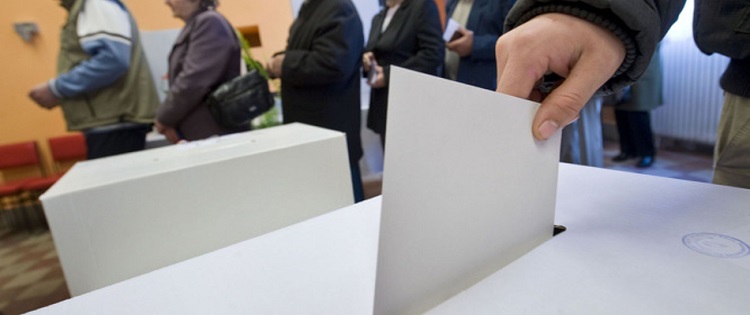
Bajnai wants to ensure an equal representation of Fidesz and opposition volunteers for the 2022 parliamentary elections.Continue reading

The Hungarian Parliament has adopted a new amendment that changes the definition of residence, so in the future a person who establishes a new one in Hungary does not have to actually live at that address. According to the official explanatory memorandum of the law, the amendment is a regulatory response to the social phenomenon that some places of residence no longer reflect the actual situations. In a joint statement, human rights NGO the Hungarian Civil Liberties Union (TASZ), and liberal think tank Political Capital, call the change dangerous as they think it legalizes the establishment of fake/fictitious addresses and enables election fraud.
The newly-adopted amendment changes the legal definition of ‘residence’, so in the future, a person who establishes a new one does not have to actually live at that address. Residence will be reduced to basically a contact address, with only a presumption of residence.
Furthermore, the section of the penal code on forgery of public documents has also been amended so that anyone will be able to register an address on a piece of [private] property with the consent of the owner, or on a property of the owner’s, without criminal sanctions – even if it is obvious from the outset that they will not live there. Thus, the amendment also eliminates punishment for the establishment of (or complicity in) a fictitious residence.
According to the official explanatory memorandum of the legislation, the amendment is a regulatory response to the social phenomenon that some given addresses no longer reflect the actual situations. Based on the Central Statistical Office (KSH) data, more than 6.37% of the Hungarian population, or some 625,000 people, do not live at their declared place of residence. The explanation also adds that the bill follows a more lax regulatory approach of limiting the state’s knowledge about its citizens to only what is required for public interest.
However, in TASZ’s view, the new regulatory approach is dangerous, because recent elections have seen several cases of people establishing a residence in an electoral district only to be able to vote there, without actually living at the address.
This happened in several cases in the 2019 municipal elections, where the police uncovered and a criminal court convicted. But a great number of people were using the practice in the northeastern border regions of Hungary as well during the 2018 parliamentary elections, with suddenly dozens of people having registered to the same address, although it was impossible for so many people to live in such a small house.
TASZ believes that the amendment itself could be a response to real problems: there are indeed many people who do not register their change of residence out of forgetfulness or for practical reasons. It would be unnecessary and excessive to hold them criminally liable – as this has certainly not been done so far.
On the other hand, those who establish (or assist with the establishment of) a fake residence in bad faith in order to illegitimately influence the outcome of elections, should continue to be deterred from doing so by the law, as this is the only way to preserve the integrity of elections.
András Fekete-Győr, who leads the liberal Momentum’s party list for next year’s parliamentary elections, called the amendment downright “scandalous.” The government has made election fraud easier than ever, he added.
In his view, this is a move by the ruling Fidesz party to “legalize the tried and tested illegal method of 2018 and scale it up.”
Another Momentum politician, Anna Orosz, considers the recent change in the law to be particularly important.
Previously, at least this type of abuse could be investigated since it was against the law, but now it is not. It will no longer be possible to prosecute those who claim false residences or those who assist them.
Ákos Hadházy sees the situation essentially in the same light as Fekete-Győr: Fidesz has just legalized another form of election fraud. According to the new law amendments, the independent MP says this way will no longer be a criminal offense for hundreds of Hungarian citizens living outside the country to register their address to a single apartment, and then be transported by buses to cast their votes.
The Democratic Coalition has also accused the ruling Fidesz party of attempting to “invigorate voter tourism.” DK’s deputy group leader Gergely Arató said the new legislation “basically means that election fraud is enshrined in law”.
In 2018, “dozens of Ukrainians” were registered in run-down, uninhabited houses near the border, said the DK politician.
Opposition parties, Arató added, would mount a campaign to verify the authenticity of the addresses of those on the electoral roll in each individual constituency.
Also, DK wants all opposition parties to jointly appeal to the Constitutional Court with the demand that it repeal the law.
Featured photo by Sándor Ujvári/MTI